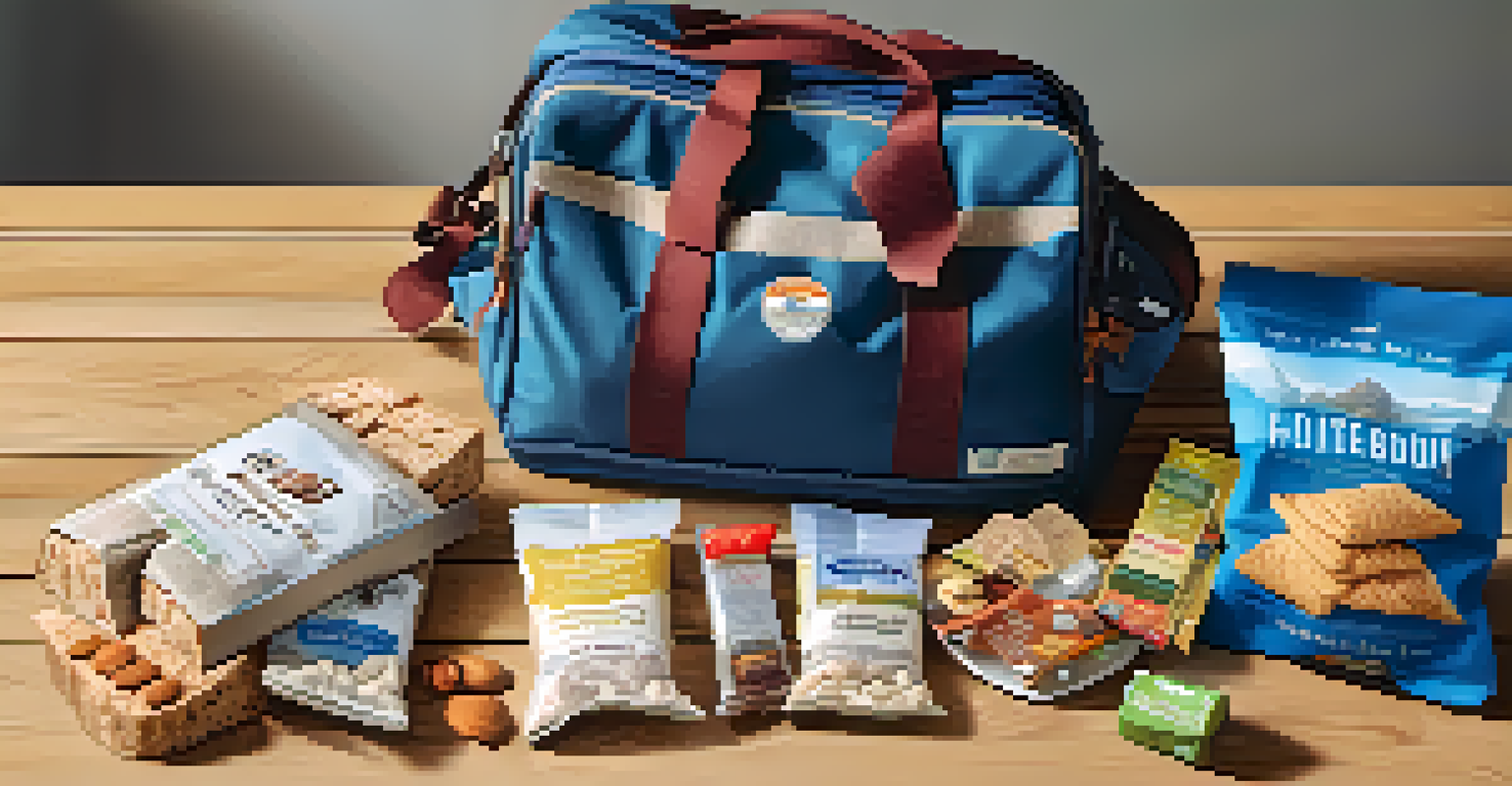Tips for Staying Gluten-Free During International Travel

Research Your Destination's Gluten-Free Options
Before you pack your bags, take some time to research your destination. Look for restaurants and stores that cater to gluten-free diets; many cities now have a growing awareness of dietary restrictions. Websites and apps dedicated to gluten-free dining can be invaluable resources when planning your meals abroad.
Travel is fatal to prejudice, bigotry, and narrow-mindedness.
You might discover local gluten-free brands or specialty shops that offer a variety of products. Knowing where to shop or eat can greatly reduce the stress of finding safe food while you're traveling. Plus, it can lead to some delicious discoveries that you might not have encountered otherwise!
Consider joining online forums or social media groups related to gluten-free travel. Connecting with fellow travelers can provide first-hand recommendations and tips that are specific to your destination. The experience of others can often help you navigate the local food scene with confidence.
Pack Gluten-Free Snacks for Your Journey
Traveling can often lead to long stretches without food options, especially in airports or during layovers. To avoid accidental gluten exposure, packing your own gluten-free snacks can be a lifesaver. Think portable items like nuts, protein bars, or gluten-free crackers that won't take up too much space in your luggage.

These snacks not only keep your hunger at bay but also offer peace of mind when food options are limited. It’s also a great way to maintain your energy levels during busy travel days. Plus, you can enjoy your favorite treats without worrying about hidden gluten ingredients.
Research Gluten-Free Options
Investigate local restaurants and stores that cater to gluten-free diets before traveling to ensure safe dining experiences.
Don’t forget to check the regulations for bringing food into your destination country. Some places have strict customs rules about what you can carry. Always research beforehand to ensure you can enjoy your snacks without any hiccups at customs!
Learn Key Gluten-Free Phrases in the Local Language
Language barriers can make dining out a bit tricky, especially when it comes to dietary restrictions. Learning a few key phrases can make all the difference in ensuring you communicate your needs effectively. Simple phrases like 'I cannot eat gluten' or 'Is this dish gluten-free?' can be incredibly helpful.
The world is a book, and those who do not travel read only one page.
You can even print out a card with your dietary restrictions in the local language to show restaurant staff. This not only helps them understand your needs but also opens up a dialogue about safe options available. It's a small effort that can lead to a much smoother dining experience.
Apps like Google Translate can also assist you in real-time conversations, allowing you to clarify ingredients and preparation methods. Being proactive about language can enhance your travel experience and help you avoid gluten-related mishaps.
Choose Accommodations with Kitchen Facilities
Staying in places where you have access to a kitchen can be a game changer for gluten-free travelers. By preparing your own meals, you can ensure that everything is safe and meets your dietary needs. Look for vacation rentals or hotels that offer kitchen amenities to give you more control over what you eat.
This approach not only helps you avoid gluten but can also be a fun way to explore local markets and ingredients. You can whip up a delicious meal using fresh, local produce and spices, creating a unique culinary experience. Plus, cooking can be a relaxing break from the fast-paced travel itinerary.
Pack Snacks for Travel
Bringing your own gluten-free snacks can prevent accidental gluten exposure during your journey.
Even if you choose not to cook every meal, having the option to prepare snacks or light meals can significantly ease your worries. Just knowing you have a safe space to prepare food can enhance your overall travel enjoyment.
Be Cautious with Cross-Contamination
Cross-contamination is a common concern for those with gluten sensitivities or celiac disease. It can happen when gluten-free foods come into contact with gluten-containing products, so it’s essential to be vigilant. When dining out, don’t hesitate to ask how food is prepared and if separate utensils or surfaces are used for gluten-free dishes.
In some restaurants, gluten-free options may be prepared in the same kitchen as regular dishes, increasing the risk of cross-contact. By clearly communicating your needs, you can help ensure that your meal is prepared safely. Consider dining at places that specialize in gluten-free cuisine, as they often have more rigorous practices in place.
At the very least, choose eateries that demonstrate an understanding of gluten-free protocols. A restaurant that takes your dietary requirements seriously can greatly reduce your anxiety while enjoying local cuisine.
Stay Alert for Hidden Gluten in Foods
Many foods contain hidden gluten, making it crucial to stay informed about what to avoid. Ingredients like soy sauce, malt vinegar, and even certain broths can contain gluten, so it's important to ask questions. When in doubt, opt for plain foods like grilled meats and vegetables, which are less likely to have gluten added.
Reading labels is another way to protect yourself. This can be tricky when traveling abroad, so familiarize yourself with common gluten-containing ingredients in the local cuisine. Knowing what to look for can help you navigate menus and grocery stores with confidence.
Learn Local Gluten-Free Phrases
Familiarizing yourself with key gluten-free phrases in the local language can help communicate your dietary needs effectively.
If you're unsure about a dish, don’t hesitate to ask for modifications. Most restaurants are happy to accommodate dietary needs, especially when they understand your concerns. Being proactive about your food choices will give you peace of mind while enjoying new flavors.
Consult with Your Doctor Before Traveling
Before embarking on your journey, it’s wise to have a candid conversation with your doctor or a nutritionist. They can provide personalized advice based on your health needs and might even recommend a travel-friendly gluten-free diet plan. They may also suggest specific supplements to carry with you for added peace of mind.
If you have severe gluten sensitivity or celiac disease, discussing travel tips and emergency plans is crucial. It’s essential to know what to do if you accidentally consume gluten and how to manage any symptoms that may arise. Having a clear plan can alleviate anxiety and make traveling more enjoyable.

Your healthcare provider may also provide guidance on local gluten-free resources or specialists that can help during your trip. Being informed and prepared is key to ensuring a safe and enjoyable travel experience.